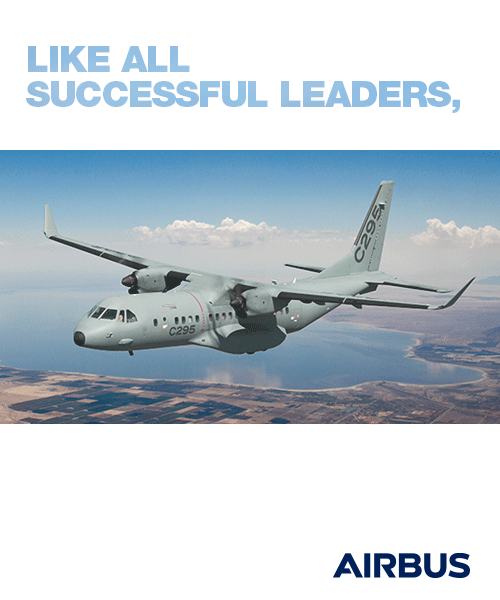By Ajai Shukla
Business Standard, 5th July 15
So dire is the shortfall of skilled workers in the aerospace
and aviation sector that the country’s only major aerospace manufacturer,
Hindustan Aeronautics Ltd (HAL), trains a thousand of its own apprentices each
year.
Yet, this
does nothing to meet the burgeoning requirement for trained workers in a range
of other aerospace and aviation entities --- including private airlines,
maintenance, repair and overhaul (MRO) providers, commercial service providers
and small and medium aerospace manufacturers in the public and private sectors.
That is why
a host of leading aerospace companies and establishments have joined the
Aerospace and Aviation Sector Skill Council (AASSC), which unveiled a plan in
Bengaluru on Tuesday to certify 5,20,000 trainees, and 6,000 qualified
instructors over the next ten years.
Amongst
those who have thrown their weight behind the AASSC are Jet Airways (India)
Ltd, Tata Advanced Systems Ltd, Max Aerospace and Aviation Pvt Ltd, Dynamatic
Technologies Ltd, Indian Space Research Organisation (ISRO), National
Aeronautical Laboratory (NAL), Federation of Indian Airlines and Airports
Authority of India.
HAL chief,
T Suvarna Raju, who chairs the AASSC, says they will draw up a standardised
curriculum for training workers in some 70-odd trades. The aim is to create
assured professional skills in fields that range from Levels 1&2 (low
skill) workers like baggage handlers and airport drivers; to Level 4 (highly skilled)
workers like engineers, scientists and technicians.
Over the
next three years, AASSC plans to introduce 30 courses, which will benefit an
“aerospace sector battling for talent in various disciplines”, says HAL.
“The
curriculum will be defined and set out in writing. Any institution that has the
facility to impart this training will be invited to take it up”, says Raju.
At the apex
level, the nodal agency for such trade training is the Ministry of Skill
Development and Entrepreneurship (MSDE), which coordinates skilling activities through
the National Skill Development Corporation (NSDC), a not-for-profit, public-private
partnership (PPP) established under Section 25 of the Companies Act.
To
establish a skills council for the aviation sector, the NSDC roped in three sectoral
agencies --- HAL, the Bangalore Chamber of Industry and Commerce (BCIC), and
the Society of Indian Aerospace Technologies and Industries (SIATI). Working
together, they established the AASSC last year as a Section 8 Company
(non-profit organisation) under the Companies Act, 2013.
Of the
AASSC’s capital of Rs 25 lakhs, HAL has contributed half, while BCIC and SIATI
have shared the balance.
AASSC is
drawing up the training guidelines, parameters and standards for the aviation
sector under the oversight of a management board that represents all major
facets of civil and military aviation.
“Initially,
there will be 18 board members, including from commercial airlines, and service
and manufacturing sectors. However, we can expand the board to 26 members, if
we determine we need additional representation”, says Raju.
While not
yet announced, it is learned that Wing Commander (Retired) D Peter Immanuel has
been chosen as the first chief executive of the AASSC.
The NSDC’s
website says “It aims to promote skill development by catalyzing creation of
large, quality, for-profit vocational institutions.” It aims to achieve 30 per
cent of the government’s target of “skilling/up-skilling 500 million people in
India by 2022”.
The NSDC claims
to have 211 training partners and 3,026 training centres, which have trained
51,63,546 people, of whom 21,14,816 have already been placed in jobs.
In January
2014, the defence ministry had set up its own coordination body, the National
Aeronautics Coordination Group (NACG), with the charter: “To recommend national
policy on aerospace and a comprehensive plan of action for suitable
augmentation of indigenous capability in the field of aeronautics by [March 31,
2014].” Skills development would have been an important component of this
charter, but the NACG has achieved nothing so far.
























Training apprentices in the field in big industries is the correct way to develop skilled manpower. Every Aviation major worth their salt does this and it works very well for them , the brighter ones amongst these apprentices have risen to the very top of their companies.
ReplyDelete1. Introducing Airlines company sponsored/co-developed Aeronautics Engineering in Major Engineering and MRO Technician Vocational courses in Polytechnic Institutes may also be of help.
ReplyDeleteThe engineering Graduates must sign a 6 year Bond hat they will work In India or Indian aviation employers upon graduation.... would not be a bad deal considering the company that hired you partially pays for your education and if you score above a level is ready to hire you.
If they dont want to work for Indian aviation, they can be absorbed by armed forces under UES (in which case the bond is not violated) or can opt for a teaching position.
2. Ex Military officers and men may be hired, its what Lockheed Martin, Northrop Grumman and other such companies do not just in the US but world wide including Russia and Europe. The actual work experience level is invaluable.
That takes care of Manpower requirements...
Question is how can we stimulate the growth of MSMEs who deal with sub assembly parts. The real backbone of 'Make In India'.
It's really good to know about as Aerospace companies back new skilling agency. Thanks for it. Hope you continue for the same.
ReplyDeleteCommercial Service Providers